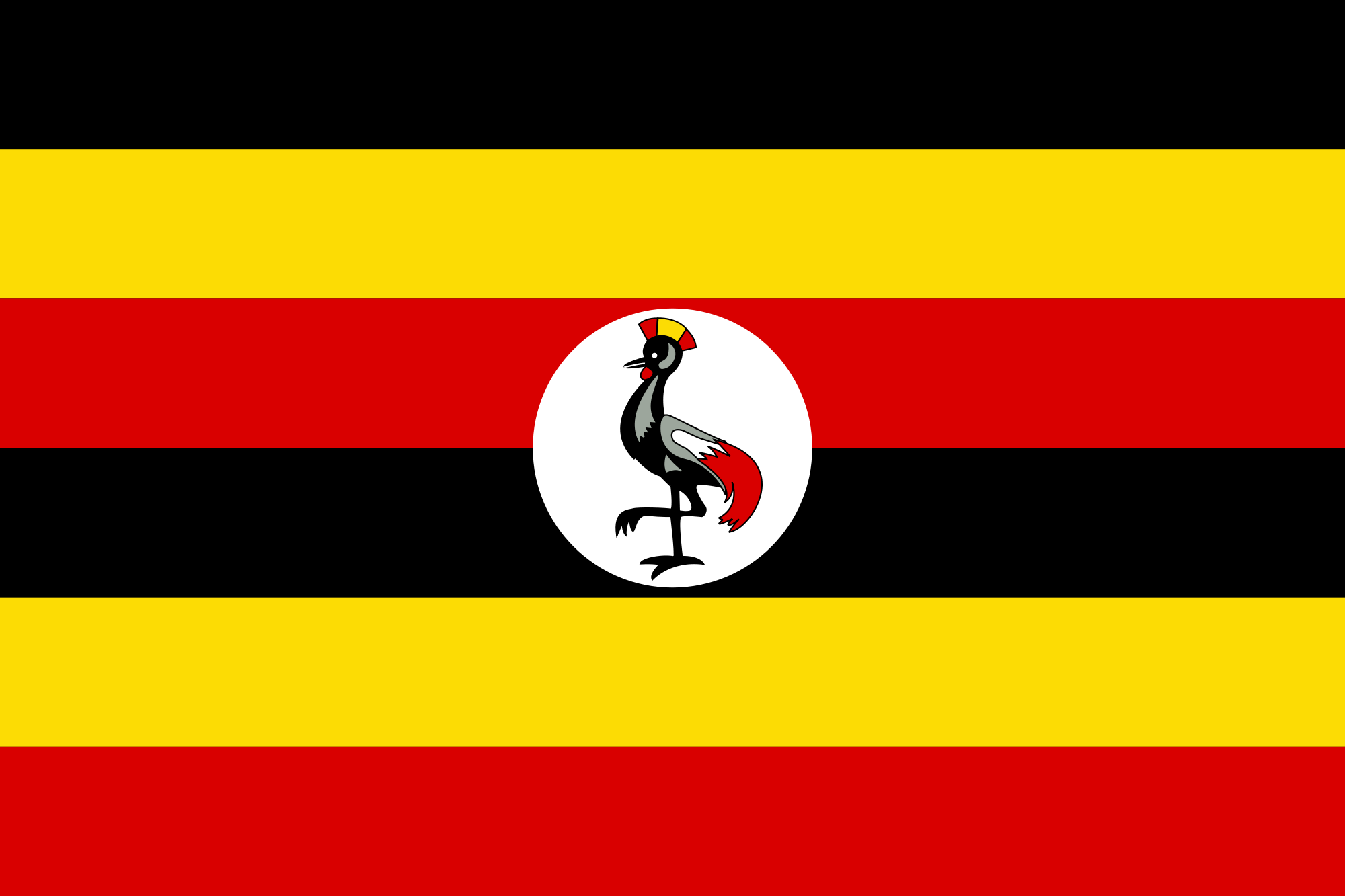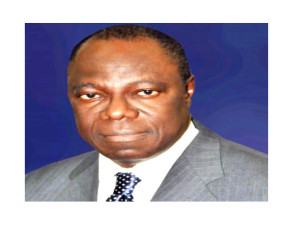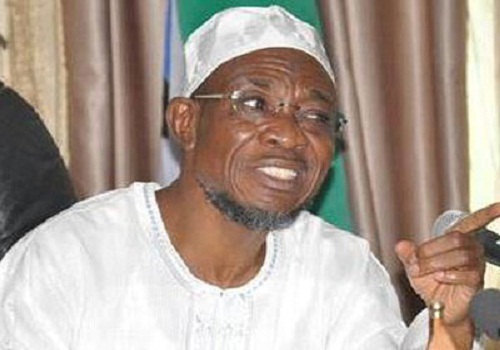Frontpage News (3259)
Country facing HIV drugs shortage, govt seeks cash for imports
Written by Super User Uganda is suffering a shortage of imported drugs to treat HIVvictims due to a weak currency and insufficient foreign exchange but the government is raising funds to cover the shortfall, a senior finance ministry official said. Health activists say about 240,000 patients on publicly funded treatment programmes are at risk because of the shortage, forcing them to take lower dosages or none at all. Some activists said they were concerned the government was spending too much on measures designed to help them win presidential and parliamentary elections in February rather than on medicines. Officials denied the charge.
Uganda is suffering a shortage of imported drugs to treat HIVvictims due to a weak currency and insufficient foreign exchange but the government is raising funds to cover the shortfall, a senior finance ministry official said. Health activists say about 240,000 patients on publicly funded treatment programmes are at risk because of the shortage, forcing them to take lower dosages or none at all. Some activists said they were concerned the government was spending too much on measures designed to help them win presidential and parliamentary elections in February rather than on medicines. Officials denied the charge.
In Uganda about 1.5 million people, or about 4 percent of the population, is living with the HIV virus, of which about 820,000 receive antiretroviral therapy (ART) drugs that help prevent the infection turning into full-blown AIDS.
500,000 Lagos Residents Threatened By Looming Epidemic From Sewage Plant
Written by Super User No fewer than 500,000 residents of Iponri Low-Cost Housing Estate, Surulere Local Government Area, Lagos State, on Sunday appealed to the Lagos State Government to save their lives from epidemic that was looming there. They told the News Agency of Nigeria (NAN) that the sewage plant that usually drains dirty water from the soak-away of more than 400 housing units with 500,000 residents had been disconnected by Eko Disco (EKEDC) due to unpaid bills. They said that the non-functioning of the sewage plant had resulted into flooding of the estate by dirty water from the soak away, thus spreading stench odour in the area.
No fewer than 500,000 residents of Iponri Low-Cost Housing Estate, Surulere Local Government Area, Lagos State, on Sunday appealed to the Lagos State Government to save their lives from epidemic that was looming there. They told the News Agency of Nigeria (NAN) that the sewage plant that usually drains dirty water from the soak-away of more than 400 housing units with 500,000 residents had been disconnected by Eko Disco (EKEDC) due to unpaid bills. They said that the non-functioning of the sewage plant had resulted into flooding of the estate by dirty water from the soak away, thus spreading stench odour in the area.
Mr Abdul-Rasak Osho, President, Iponri Housing Estate Residents’ Association, told NAN that the sewage plant constructed by the Lagos State Government was being maintained by the Ministry of the Environment.
FG Launches Project To Boost HIV/AIDS Service Delivery
Written by Super User The Federal Government in collaboration with other partners has launched a new project to boost and strengthen services against HIV/AIDS prevalence in the country. The two year project tagged “Strengthening HIV/AIDS Service Delivery through Human Resources for Health (HRH) Systems in Nigeria” will be implemented by CapacityPlus, a USAID funded project implemented by IntraHealth in 29 countries. Launching the project on Sunday in Abuja, Permanent Secretary, of the Ministry of Health, Dr. Amina Shamaki said it will respond adequately to ‘human resource for health implications’ of the national health sector reforms.
The Federal Government in collaboration with other partners has launched a new project to boost and strengthen services against HIV/AIDS prevalence in the country. The two year project tagged “Strengthening HIV/AIDS Service Delivery through Human Resources for Health (HRH) Systems in Nigeria” will be implemented by CapacityPlus, a USAID funded project implemented by IntraHealth in 29 countries. Launching the project on Sunday in Abuja, Permanent Secretary, of the Ministry of Health, Dr. Amina Shamaki said it will respond adequately to ‘human resource for health implications’ of the national health sector reforms.
Represented by the Director, Planning, Research and Statistics of the ministry, Dr Ngozi Azodoh , he said this includes addressing those priority interventions required to be strengthened towards achieving the health Sustainable Development Goals (SDGs) and the realization of the Universal Health Coverage through improved health indices.
Chief Medical Director says 5,000 babies are born yearly with ear defects
Written by Super User No fewer than 5,000 babies are born yearly with ear defects in Nigeria, Prof. Adewale Oke, the Chief Medical Director, Lagos State University Teaching Hospital (LASUTH), Ikeja, has said. Oke made the disclosure on Saturday in Lagos, while briefing newsmen on the hospital's first successful middle ear implant surgery conducted in its premises. "I know that 5, 000 new babies are being born annually in Nigeria with ear defects"."This means they are deaf and sometimes the cause of their deafness is congenital, we call it from birth".
No fewer than 5,000 babies are born yearly with ear defects in Nigeria, Prof. Adewale Oke, the Chief Medical Director, Lagos State University Teaching Hospital (LASUTH), Ikeja, has said. Oke made the disclosure on Saturday in Lagos, while briefing newsmen on the hospital's first successful middle ear implant surgery conducted in its premises. "I know that 5, 000 new babies are being born annually in Nigeria with ear defects"."This means they are deaf and sometimes the cause of their deafness is congenital, we call it from birth".
"In Some of these babies lacked some hearing mechanism in their ears, so the best way to restore the hearing is through surgery, which has not been part of the practice before now".
 Mr Nurudeen Mohammed, Registrar, Pharmacists Council of Nigeria (PCN), on Tuesday said the Federal Government would stop open sale and hawking of drugs by 2017. Mohammed disclosed this in an interview with the News Agency of Nigeria (NAN) in Abuja. He said the council was collaborating with law enforcement agencies and other regulatory bodies to tackle the menace. He said that open drug marketers were expected to move to designated centres like the National Drug Distribution Centres and Coordinated Wholesale Centres to carry out their activities.
Mr Nurudeen Mohammed, Registrar, Pharmacists Council of Nigeria (PCN), on Tuesday said the Federal Government would stop open sale and hawking of drugs by 2017. Mohammed disclosed this in an interview with the News Agency of Nigeria (NAN) in Abuja. He said the council was collaborating with law enforcement agencies and other regulatory bodies to tackle the menace. He said that open drug marketers were expected to move to designated centres like the National Drug Distribution Centres and Coordinated Wholesale Centres to carry out their activities.
According to him, the centres are component of the National Drug Distribution Guideline structures which are private sector driven facilities. He urged those saddled with the task to expedite actions toward construction of those facilities to avoid being sanctioned at the expiration of the set date. Mohammed said that the federal government in its bid to curtail the menace of open drug sale, among others, established NDDG, which incorporated Coordinated Wholesale Centres, among others.
Health Workers Kick Against closure Of FMC Owerri By Health Minister
 The Joint Health Sector Union (JOHESU) at the weekend condemned the closure of the Federal Medical Centre (FMC), Owerri by the minister of health, Prof. Isaac Adewole, declaring that the minister acted against the resolutions reached by stakeholders after its joint tripartite negotiation meeting. The union in a statement signed by JOHESU chairman, comrade Biobelemoye Joy Josiah, the vice chairman, Dr. Ogbonna Obinna and the secretary Florence Ekpebor also called on President Muhammadu Buhari to intervene in the crisis rocking the FMC, Oweri.
The Joint Health Sector Union (JOHESU) at the weekend condemned the closure of the Federal Medical Centre (FMC), Owerri by the minister of health, Prof. Isaac Adewole, declaring that the minister acted against the resolutions reached by stakeholders after its joint tripartite negotiation meeting. The union in a statement signed by JOHESU chairman, comrade Biobelemoye Joy Josiah, the vice chairman, Dr. Ogbonna Obinna and the secretary Florence Ekpebor also called on President Muhammadu Buhari to intervene in the crisis rocking the FMC, Oweri.
It stated that the decision to temporary shutdown the medical centre by the minister came as a surprise to the entire labour leaders and stakeholders in the health sector. The unions said the closure of the FMC was not among the options arrived at in a meeting held at the centre in Owerri on December 4, which has in attendance the minister himself, members of House of Representatives and the union leaders who all travelled down to Oweri for the crucial meeting.
 Osun State Governor, Ogbeni Rauf Aregbesola has issued a seven-day ultimatum to striking medical doctors in the state to return to their duty posts or be seen as having voluntarily resigned their appointments with the state government. Aregbesola in a public service announcement released by the Permanent Secretary, Human Resources and Capacity Building, Mr Sunday Festus Olajide, said despite series of appeals from government to medical doctors in Ladoke Akintola University of Technology Teaching Hospital (LAUTECH), Osogbo and other government health institutions to show understanding, the striking doctors have remained adamant.
Osun State Governor, Ogbeni Rauf Aregbesola has issued a seven-day ultimatum to striking medical doctors in the state to return to their duty posts or be seen as having voluntarily resigned their appointments with the state government. Aregbesola in a public service announcement released by the Permanent Secretary, Human Resources and Capacity Building, Mr Sunday Festus Olajide, said despite series of appeals from government to medical doctors in Ladoke Akintola University of Technology Teaching Hospital (LAUTECH), Osogbo and other government health institutions to show understanding, the striking doctors have remained adamant.
It contented that the doctors have continued to draw their salaries in the last two months and still remain at home thus eating their cake and still having it. The government in the statement said that any striking doctor that failed to return to work on or before the expiration of seven- day ultimatum beginning from 18th December 2015 should consider himself or herself of having voluntarily resigned his or her appointment with government.
Regular Medical Check-ups Will Prevent Sudden Death – NMA
Written by Super User The chairman of the Nigerian Medical Association (NMA), Oyo State chapter, Dr. Muyideen Olatunji, has said that only regular medical check-ups by citizens can prevent the prevalence of some of the diseases leading to sudden death in the society. Speaking at Idi-Ishin, an outskirts of Ibadan, the Oyo State capital, while declaring open a one-day free medical outreach organised by Precious Gem Medical Consult located within the community yesterday, he lamented that “Nigerians go to the hospital only when they are sick which should not be and which is why people break down suddenly and in most cases, sudden death occurs”.
The chairman of the Nigerian Medical Association (NMA), Oyo State chapter, Dr. Muyideen Olatunji, has said that only regular medical check-ups by citizens can prevent the prevalence of some of the diseases leading to sudden death in the society. Speaking at Idi-Ishin, an outskirts of Ibadan, the Oyo State capital, while declaring open a one-day free medical outreach organised by Precious Gem Medical Consult located within the community yesterday, he lamented that “Nigerians go to the hospital only when they are sick which should not be and which is why people break down suddenly and in most cases, sudden death occurs”.
The NMA boss, who stressed that vehicle owners do not allow their vehicles to break down before they take them to the mechanics, said “it is unfortunate that the way people care for ordinary vehicles, they don’t care for their lives”.
“BEFORE THEY GET AWAY WITH IT”: A COMMUNIQUÉ READ AT THE PRESS BRIEFING BY THE PRESIDENT OF ASSOCIATION OF RESIDENT DOCTORS.
Written by Super User The Association of Resident Doctors, LTH, Osogbo, a centre affiliate of National Association of Resident Doctors (NARD) is an umbrella body for all doctors in Residency Training Program in LAUTECH Teaching Hospital. One of the aims of the body is to assist the Government and good people of the State in the provision of smooth, efficient and effective Health Care Delivery.
The Association of Resident Doctors, LTH, Osogbo, a centre affiliate of National Association of Resident Doctors (NARD) is an umbrella body for all doctors in Residency Training Program in LAUTECH Teaching Hospital. One of the aims of the body is to assist the Government and good people of the State in the provision of smooth, efficient and effective Health Care Delivery.Aregbesola Inaugurates 9-man Board for LAUTTH
Written by Super User Osogbo. Members of the Board are: Dr. Kayode Akinlade, Dr. Ademola Akintolu Onifade, Oba Dr. Folorunso Agboade Makanju Olaniyan, Acting Chief Medical Director LAUTECH, Prof. Akeem Lasisi, Permanent Secretary Osun Ministry of Health, Dr. Temitope Olalekan Oladele. Others are the Chairman of the Osun branch of the Nigeria Medical Association, Dr. Surajudeen Ogunyemi, Provost, College of Medicine, LAUTECH, Prof. Samuel Sunday Taiwo, and Chairman, Medical Advisory Committee, Dr. Daniel Adebode Adekanle.
Osogbo. Members of the Board are: Dr. Kayode Akinlade, Dr. Ademola Akintolu Onifade, Oba Dr. Folorunso Agboade Makanju Olaniyan, Acting Chief Medical Director LAUTECH, Prof. Akeem Lasisi, Permanent Secretary Osun Ministry of Health, Dr. Temitope Olalekan Oladele. Others are the Chairman of the Osun branch of the Nigeria Medical Association, Dr. Surajudeen Ogunyemi, Provost, College of Medicine, LAUTECH, Prof. Samuel Sunday Taiwo, and Chairman, Medical Advisory Committee, Dr. Daniel Adebode Adekanle.More...
Igbobi hospital seeks improvement in health insurance, services
Written by Super User The management of the National Orthopaedic Hospital Igbobi (NOHI), Lagos, has called for efforts to boost the number of enrollees in the nation’s health insurance scheme, noting that such improvement would help to defray the cost treatment of most patients in need of othopaedic care. Speaking recently in Lagos during press briefing to herald the 70th year anniversary celebration of the hospital, NOHI Medical Director, Dr Olurotimi Odunubi, added that such improvement would also help to reduce the level of non-recoverable debts among various patients in the hospital. Odunubi put the non-coverable debt in the hospital between N25 million to N30 million owed by various patients, adding that the phenomenon “has affected our services in a way".
The management of the National Orthopaedic Hospital Igbobi (NOHI), Lagos, has called for efforts to boost the number of enrollees in the nation’s health insurance scheme, noting that such improvement would help to defray the cost treatment of most patients in need of othopaedic care. Speaking recently in Lagos during press briefing to herald the 70th year anniversary celebration of the hospital, NOHI Medical Director, Dr Olurotimi Odunubi, added that such improvement would also help to reduce the level of non-recoverable debts among various patients in the hospital. Odunubi put the non-coverable debt in the hospital between N25 million to N30 million owed by various patients, adding that the phenomenon “has affected our services in a way".
Odunubi stated that in spite of the several challenges that have confronted the hospital in the past seven decades, the hospital has done tremendously well to improve orthopaedic care in the country, even as he stated that the hospital now performs total hip and kneel replacement. “The hospital is now reputed to be the largest orthopaedic hospital in the West African sub-region with a world class intensive care unit; Odunubi said.
 The federal government has inaugurated a 5-man interim management committee to look into the crisis that has disrupted activities at the Federal Medical Centre, Owerri, Imo state, with the intention of restoring lasting peace and services. The committee has been saddled with 11 terms of reference and is expected to complete the job within six months of its inauguration and chat a roadmap towards the achievement of delivering health services to the people. This was revealed, Monday, by the minister of health, Prof Isaac Adewole at the Federal Ministry of Health, Abuja, when he inaugurated the committee to be supervised by Prof Ndubisi Eke.
The federal government has inaugurated a 5-man interim management committee to look into the crisis that has disrupted activities at the Federal Medical Centre, Owerri, Imo state, with the intention of restoring lasting peace and services. The committee has been saddled with 11 terms of reference and is expected to complete the job within six months of its inauguration and chat a roadmap towards the achievement of delivering health services to the people. This was revealed, Monday, by the minister of health, Prof Isaac Adewole at the Federal Ministry of Health, Abuja, when he inaugurated the committee to be supervised by Prof Ndubisi Eke.
He stated that despite all entreaty to end the crisis, the unions rebuffed federal governments request to give a 3-month moratorium to work with the management, within which period it would make resources available to address some of their welfare issues in addition to improving the lot of the hospital, hence the decision to shut dowm the hospital. He said the committee is expected to “take over all administrative, technical, operational and financial functions of the centre and restore humane healthcare services, review events leading up to the industrial unrest and ensure inter/intra professional harmony among all cadres of staff and take inventory of all properties, assets and liabilities of the centre.”
2, 000 Widows To Benefit From Rural Health Insurance Scheme In Enugu State
 No fewer than 2,000 widows in Nenwe community of Enugu State are to benefit from the Rural Health Insurance Scheme, sponsored by Jonalfa Hope International Foundation. The founder of the foundation, retired Air Vice-Marshal Chris Chukwu, announced this on Thursday in Nenwe during the inauguration of Nenwe Health Scheme. Chukwu, an indigene of the community, noted that the gesture was to bring succour to the widows, whom he said are suffering untold hardship. He said that Nenwe with 27 villages have over 3,000 widows.
No fewer than 2,000 widows in Nenwe community of Enugu State are to benefit from the Rural Health Insurance Scheme, sponsored by Jonalfa Hope International Foundation. The founder of the foundation, retired Air Vice-Marshal Chris Chukwu, announced this on Thursday in Nenwe during the inauguration of Nenwe Health Scheme. Chukwu, an indigene of the community, noted that the gesture was to bring succour to the widows, whom he said are suffering untold hardship. He said that Nenwe with 27 villages have over 3,000 widows.
“We embarked on a re-verification exercise to have an authentic data of widows in the community and the actual numbers we will be sponsoring. “At the end of the exercise, 2,000 widows were captured and we are making a commitment to sponsor them in 2016, and beyond as our finances can go, “ he said. Chukwu said that the foundation had deposited N2.5 million out of N7.2 million required for the scheme annually. He appealed to the managers of the scheme to review downward the registration fees for beneficiaries to enable more people to participate.
 The President of the African Export-Import Bank (Afreximbank), Dr. Benedict Oramah, has announced that Nigeria has been selected as one of three countries for the initial rollout of its new programme aimed at improving healthcare delivery in Africa.A statement by Afreximbank on Wednesday said that Dr. Oramah told a delegation from the Nigerian Embassy in Cairo that the programme, which is being implemented in collaboration with United Kingdom-based Kings College Hospital Management Limited, would also be rolled out in Ghana and Kenya.
The President of the African Export-Import Bank (Afreximbank), Dr. Benedict Oramah, has announced that Nigeria has been selected as one of three countries for the initial rollout of its new programme aimed at improving healthcare delivery in Africa.A statement by Afreximbank on Wednesday said that Dr. Oramah told a delegation from the Nigerian Embassy in Cairo that the programme, which is being implemented in collaboration with United Kingdom-based Kings College Hospital Management Limited, would also be rolled out in Ghana and Kenya.
He commended the Nigerian Ministry of Health for its support of the initiative, which seeks to develop world class medical and health facilities across Africa, with the establishment of medical centres of excellence and commencing with haematological medicine. He said that Nigeria was the largest recipient of Afreximbank loans, having received almost 33 percent of the portfolio, or $21 billion, from the Bank since it started operations. According to him, the facilities went mainly to financial institutions for activities in the agricultural, electricity supply, value added activities and other sectors.






